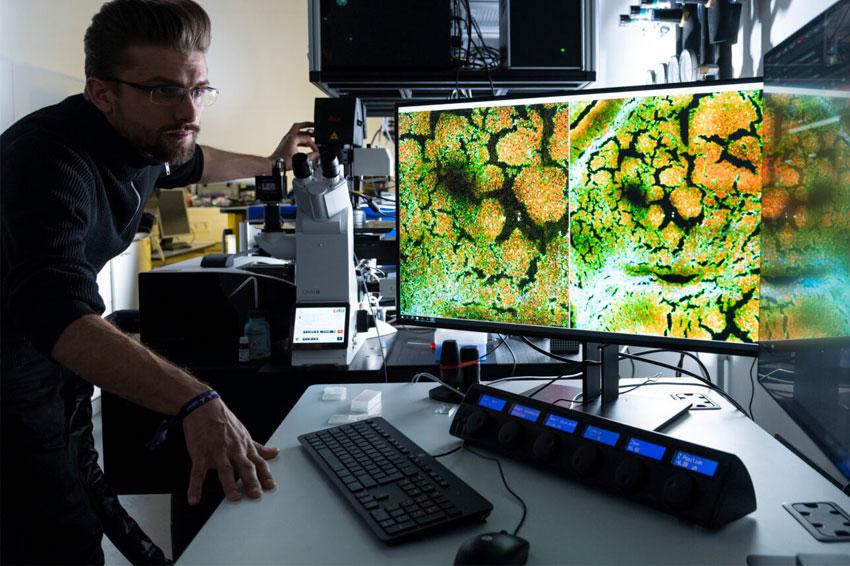Fast biopsies with optical technologies
11.06.2024
- uCAIR project: real-time diagnosis instead of time-consuming biopsy analysis
A European research team including Leibniz IPHT and the Friedrich Schiller University Jena is developing a new light-based technology for faster and more precise medical diagnosis. The non-invasive spectroscopic method promises gentler diagnoses as well as more targeted treatments, especially for cancer.
The uCAIR project, coordinated by the University of Limerick, aims to bring nonlinear Raman imaging into clinical practice. This technique produces high-resolution images that provide detailed information about the biochemical composition of cells, tissue or body liquids, enabling a more precise investigation of the microenvironment in which disease develops. Current imaging techniques provide limited insight into these microenvironments of living cells. The uCAIR project aims to overcome these limitations with a probe that detects molecular changes label-free and in real time. This could replace lengthy biopsy analyses with rapid, almost instantaneous diagnoses.
“Current Raman-based imaging systems are still too slow for diagnostic procedures,” explains professor Christophe Silien of the University of Limerick, who is coordinating the project. “To improve the accuracy and speed of these systems, the uCair project is developing an innovative probe driven by artificial intelligence. The new technologies will be tested in two bladder cancer case studies: first, by analyzing biopsy tissue, and second, by rapidly testing liquid biomarkers from urine.
“We want to break through the technological barriers that currently prevent widescale adoption of Raman in clinical practices,” emphasizes Silien. “To this end, the consortium brings together world recognised experts covering the whole development chain including R&D photonics SMEs, research laboratories in optics and cell biology, and world-leading microscopists and clinicians.”
Leibniz IPHT plays a central role in the development and validation of the new technology. The Jena researchers are responsible for the preparation of benchmark samples, which are crucial for the evaluation of the new Raman technologies. “As a fast and non-invasive method, Raman-based technology has the potential to significantly improve biopsy analysis in clinical practice,” explains professor Jürgen Popp, scientific director of Leibniz IPHT.
The project will receive around five million euros in funding under the Europeans Union’s Horizon Europe Programme. uCAIR brings together eleven partner institutions from Ireland, Belgium, Czech Republic, France, Germany and Turkey, among them are the companies Lambda-X (Belgium) and LLS Rowiak (Germany).
Contact
Leibniz-Institut für Photonische Technologien e.V.
Albert-Einstein-Str. 9
07745 Jena
Germany
+49 3641 206-00
+49 3641 206-099





